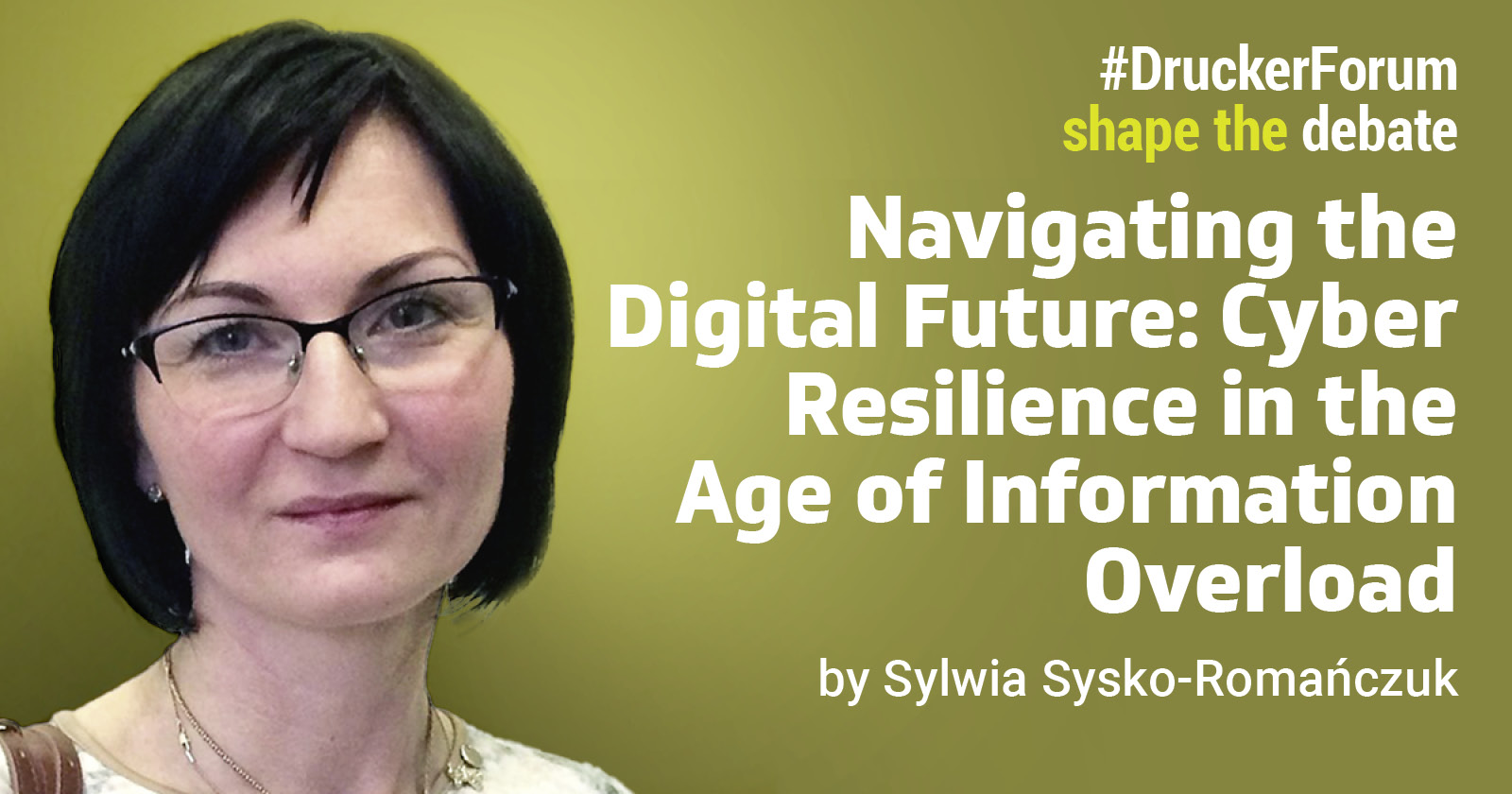
As we enter the digital era, where technology and data are undergoing enormous changes, the conversation surrounding cyber resilience has evolved from a specialised worry to a necessity that applies to everyone. This crucial topic was brought to the forefront during the recent Deep Dive Dialogue at the Global Peter Drucker Forum 2023. The event featured luminaries such as Rebecca Kerr, Thomas Arnoldner, and Helmut Reisinger, highlighting the joint effort to protect our digital infrastructure. However, a parallel difficulty emerges with grave ramifications when we go deeper into cybersecurity, and that challenge is information overload.
Uncovering the Concept of Cyber Resilience
According to Rebecca Kerr, cyber resilience is the capacity to produce the planned outcomes despite persistently adverse cyber events. This concept goes beyond simple defence measures and encompasses the ability to adjust to new circumstances and recover from threats posed by digital technology. Thomas Arnoldner emphasised the significance of this resilience in defending the essential infrastructure that sustains the most fundamental operations of our society, ranging from healthcare to national security.
An unsettling truth was brought to light during the panel discussion: the digital world is under attack on a massive scale that takes advantage of vulnerabilities. It is clear that there is an immediate requirement for robust security measures that can adapt to these dangers.
The traditional digital fortification construction method must be replaced with a more modern technique. An all-encompassing paradigm was presented by Helmut Reisinger, which makes use of artificial intelligence to anticipate and eliminate cyber threats successfully. This change recognizes the dynamic character of cybersecurity, in which innovations in defence mechanisms must match the rapid developments in attack tactics. Additionally, the conversation shed light on the significant part that human components play in ensuring cyber resilience. Ongoing education with participation at the C-level, and cultivating a culture of cybersecurity awareness within organisations were three crucial factors. Reisinger pointed out that the psychological impact of identity theft further emphasises the necessity of comprehensive tactics that include more than technology remedies.
The participants in the panel discussion discussed the broader ramifications of cyber dangers, including the concept of “cyber-poverty” and the importance of ensuring that everyone has equal access to cybersecurity tools. By underlining the interconnectivity of cyber resilience and social justice, the conversation brought to light the importance of ensuring that economic gains obtained in the digital era are distributed.
Addressing the Problem of Information Overload
Information overload can occur as the discussion on cyber resilience grows and the elephant in the room is addressed. As a result of our increasingly digitised existence, this phenomenon presents a one-of-a-kind threat to cyber resilience. Even though the flood of data is a monument to human endeavour, it also threatens to overwhelm our cognitive capacities. This leaves individuals and organisations vulnerable to misinformation and can produce an inability to make decisions. Although it is rarely brought up in conversations on cyber resiliency, this social illness deserves immediate attention.
Our approach to digital safety and cognitive well-being must be rethought because the combination of cyber resilience and information overload offers a significant challenge. At the core of this is the realisation that while we are strengthening our digital realms, we must equally protect our minds from the flood of data. This dual conflict highlights a significant shift in our understanding of security in the information era: genuine resilience incorporates the capacity to navigate and manage oceans of information. It also includes the ability to defend successfully against cyber attacks. Adopting this more comprehensive viewpoint of cyber resilience provides a glimmer of hope. It inspires a balanced strategy that guarantees that our digital fortresses are matched by fortified minds that can discern, decide, and act with clarity in a world that is becoming increasingly complex.
Creating a Roadmap for the Future
Despite the enormous obstacles posed by cyber-attacks and an overwhelming amount of information, the Deep Dive Dialogue concluded with a positive outlook. There is a societal movement towards higher preparedness, as seen by the growing investments in cybersecurity and the adoption of security technologies that are boosted by artificial intelligence. The journey, however, must still be finished as a whole. Creativity, resilience, and shared responsibility must drive our efforts as we move forward to safeguard the digital frontier while preserving our cognitive environment from being overwhelmed by information.
About the author:
Sylwia Sysko-Romańczuk is professor of innovation and entrepreneurship at Warsaw University of Technology with research interests in value-driven growth in the digital and networked economy.

